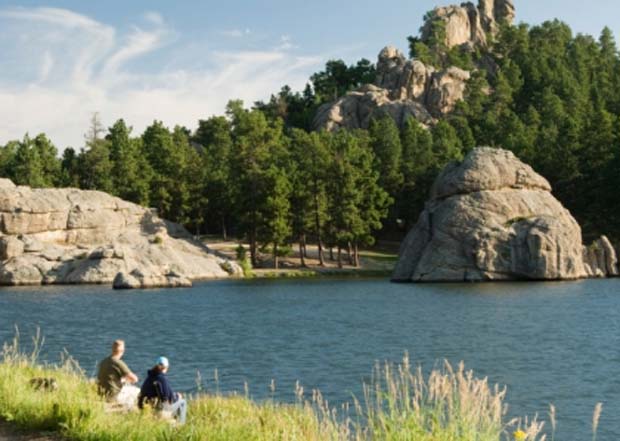If they get their way, anti-government proponents will sell our BLM fishing and hunting lands to the states who will, in turn, sell it off to developers, mining companies and frackers because they could never finance managing the lands.
For any hunter, angler, naturalist, camper, hiker, canoeist, kayaker or red blooded U. S. citizen with a love of the outdoors, this article hits a sweet spot.
We shouldn’t be talking about selling federal land in America, we should be talking about improving what we have and making it more accessible.
My New Year’s Wish: Stop the Silly Talk of Selling Public Land
by Andrew McKean
[dropcap]I[/dropcap]’m not a particularly devout individual, but there are a few things that ascend to the sacred: my family, my freedom to express myself, and my ability to access public land. That’s why I’m both bewildered and angered that what started as a bad idea a few years ago—the wholesale transfer of federal land to states or individuals—has bloomed into even worse public policy.
There’s been a lot written about this movement, but there are a few reasons why the discussion should go back into the dark closets where it started.
FEDERAL LAND HAS NEVER BEEN STATE LAND
and that it should be “returned” to state ownership. That’s a very convenient (and incorrect) reading of Western history.
The real story is that almost all Western states were once federal territories, land purchased by the U.S. Treasury (from France, Great Britain, Russia) or seized (from Spain, Mexico, and Indian nations) and governed according to fee title by the federal government until statehood. My own Montana was granted statehood by Congress in the Enabling Act of 1889. In that, the territory (this included the Dakotas and Washington state) concurred “That the people inhabiting said proposed States do agree and declare that they forever disclaim all right and title to the unappropriated public lands lying within the boundaries thereof…” This legally binding agreement is further incorporated into Article 1 of the Montana Constitution, “Compact with the United States.”
In other words, even if the feds wanted to sell, the courts are unlikely to interpret this act of Congress or states in their favor.
That said, some BLM and Forest Service land is classified as “Bankhead-Jones lands.” These were, generally speaking, failed homesteads that were returned to the federal government because they weren’t productive enough to support even modest extractive activities.
LAND MANAGEMENT IS EXPENSIVE
That brings up the second reason federal ownership shouldn’t be transferred: it would simply shift an expense currently shouldered by the federal treasury to state treasuries, which would likely be tempted to sell these lands instead of subsidizing their management.
Management means fighting fires (which cost the feds $169 million in Idaho alone in 2012; in total that year the feds spent $700 million fighting public-land fires), building fences on Bureau of Land Management grazing allotments (some $25 million in Oregon in 2014), maintaining roads on U.S. Fish & Wildlife Service refuges. You can check out more of the cost of managing public lands in the Backcountry Hunters & Anglers’ report here.
And if federal management goes away, so go the PILT subsidies. These are Payment in Lieu of Taxes that the feds pay local governments. In Colorado, in fiscal year 2014 alone, PILT payments exceeded $34.5 million. Across the West, PILT payments totaled just under $240 million in 2014.
THE APPEAL OF EXTRACTION
Proponents of liquidating federal land are largely motivated by two things: profit and a sense that public lands could be managed more efficiently with state oversight. But it’s important to note that they’re not in favor of transferring management of all federal lands, only lands that have some extractive value: minerals, crops, timber, and high-dollar viewscapes, among other attributes.
These proponents quiver with anticipation at the prospect of mining, logging, and paving land that’s currently off-limits to development or is so tightly regulated that it’s expensive and litigious to do so. The problem with this model, besides that fact that some of our most game-rich lands would be the first to be sold and developed, is that the puny revenue that the feds currently get from extractive operations subsidizes management of all the rest of the federal acreage. See above for a list of some of those management expenses.
WHY SPORTSMEN SHOULD CARE . . .







